ALS and Neuromuscular Disorders
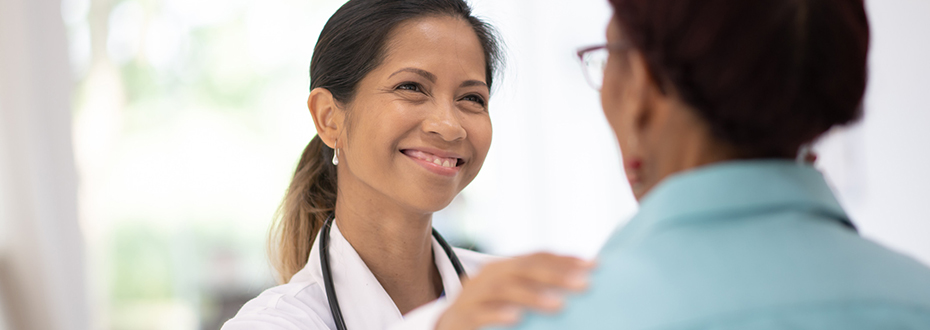
OHSU’s ALS and Neuromuscular Disease Center provides expert diagnosis and treatment of disorders that affect muscles and nerves. You’ll find:
- Neurologic care that’s ranked among the best in the nation.
- Highly trained specialists with deep expertise in neuromuscular conditions.
- One of only five Charcot-Marie-Tooth Association Centers of Excellence in the Western United States.
- A team of doctors, nurses and therapists who work together to ease your symptoms and improve your quality of life.
- Providers who also pursue research to improve patient care.
- Access to clinical trials to test promising new approaches.
OHSU’s ALS and Neuromuscular Disease Center provides expert diagnosis and treatment of disorders that affect muscles and nerves. You’ll find:
Learn more about our care for nerve conditions on our OHSU Nerve Center pages.
Conditions we treat
Peripheral neuropathies
We also treat a wide range of hereditary, illness-related and other peripheral neuropathies, including:
- Charcot-Marie-Tooth disease
- Chronic inflammatory demyelinating polyneuropathy (CIDP)
- Hereditary neuropathy with liability to pressure palsies
- Autoimmune neuropathies, such as Guillain-Barré syndrome and lupus-related neuropathy
- Neuropathies related to diabetes, chemotherapy, tumors, vasculitis and exposure to toxins
Other conditions we treat include:
- Amyloidosis: OHSU brings together blood experts and providers from the ALS and Neuromuscular Disease Center to treat amyloidosis, a rare blood disorder similar to cancer.
- Lambert-Eaton myasthenic syndrome: LEMS is an autoimmune disease, which means the immune system attacks the body’s tissues. In LEMS, the immune system targets the nerve-muscle connection, causing muscle weakness.
- Spinal muscular atrophy: This inherited disease affects the part of the nervous system responsible for the muscles that control your movements. The main symptom is muscle weakness in the shoulders, hips, thighs and upper back.
Our excellence
Charcot-Marie-Tooth center: We are among three dozen Charcot-Marie-Tooth Association Centers of Excellence in the world. We’re one of only five in the U.S. west of Texas. We earned this honor by having a team of specialists and researchers who work together to give patients complete care.
Skilled team: Our doctors completed advanced training in neuromuscular disorders at some of the nation’s top medical centers. All of our doctors are also board-certified in neurology and neuromuscular diseases. Some also have certification in neuromuscular pathology, which helps us provide precise diagnoses for these complex conditions.
Compassionate care: Our team works together to offer you therapies that provide the greatest hope for neuromuscular disorders. These may include medications to relieve symptoms, therapies to help with daily functioning, and emotional support for you and your family.
Commitment to research: The OHSU Brain Institute is a leading recipient of research funding from the National Institutes of Health. We have hundreds of scientists seeking new ways to treat neurological disorders.
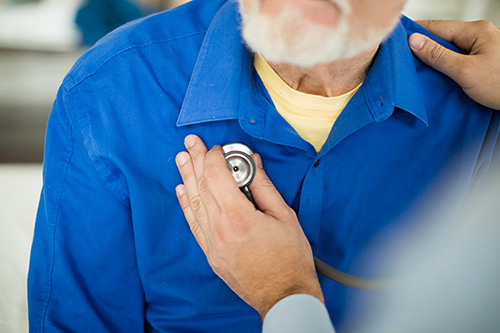
Complete care
Team-based approach: Our specialists work together to tailor a treatment plan to your unique needs. If you have ALS, for example, you’ll work with a neuromuscular specialist and with experts in speech, physical, occupational and respiratory therapy.
Convenience: You can meet with several specialists in one day. We can also help you get any device, such as a walker or brace, you need to stay mobile.
Quick answers: We aim to complete testing for your diagnosis in one day. With an on-site lab, our expert neurology team can often analyze findings that day as well. We discuss the results with you promptly so you can get started on treatment. This is especially important for nerve disorders, which can have a limited window for the most effective treatment.
Rehabilitation services: A custom physical therapy plan can help you maintain mobility. You may work one-on-one with a skilled therapist on our neurologic rehabilitation team.
Palliative care: Our palliative care specialists work with patients facing any stage of serious illnesses. They can:
- Help you and your family make health care decisions
- Provide emotional and spiritual support
- Help relieve stress
Support services
Social services: Our team includes social workers to help you with counseling, home health services and financial concerns.
ALS patient support: Twice a month, ALS Northwest meets at OHSU to provide extra support and resources. Patients typically come to a session once every three months to meet with doctors, nurses, dietitians, social workers, and physical, occupational, speech and respiratory therapists. You and the team discuss the next steps in your care.
Genetic counseling and testing: Medical geneticists at our Neuro Genetics Clinic can talk with you about testing for inherited disorders for you and/or family members.
Patient and family services: You and your family will find a full range of support services at the OHSU Brain Institute. We offer on-site pharmacies, spiritual services and many other resources.
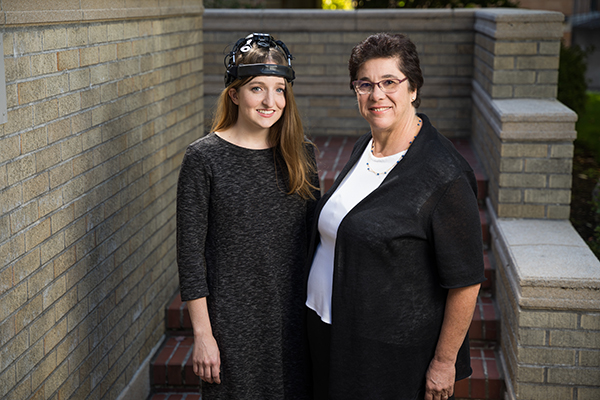
Research and clinical trials
Pursuing discoveries and bringing innovations to patients is a core mission of the OHSU Brain Institute. Our hundreds of neuroscience researchers are pursuing ways to improve care for people with neuromuscular disorders and other conditions.
- Clinical trials: Your care team will talk with you about clinical trials that might be right for you.
- Powerful technologies: OHSU’s Advanced Imaging Research Center uses some of the most sophisticated imaging systems available. We dedicate MRI machines to research aimed at improving patient care. A recent study tracked the effectiveness of new neuromuscular treatments.
Learn more about the research and clinical trials at the OHSU Brain Institute.
For patients
- Referral: To become a patient, please ask your doctor for a referral.
- Nerve Center referrals: You may also be referred to us by the OHSU Nerve Center, where specialists direct patients to the team best able to treat them.
- Questions: For questions or follow-up appointments, call 503-494-5236.
Location
Parking is free for patients and their visitors.
OHSU ALS and Neuromuscular Disease Center
Center for Health & Healing Building 1, eighth floor
3303 S. Bond Ave.
Portland, OR 97239
Refer a patient
- Refer your patient to OHSU.
- Call 503-494-4567 to seek provider-to-provider advice.
Clinical trials
- Look for an OHSU Brain Institute clinical trial.
- Learn more about current clinical trials for patients with ALS or other neuromuscular disorders by contacting:
Diana Dimitrova, Ph.D.
503-494-7269
Research assistants:Katie Lewis lewiskat@ohsu.edu
Katie Norris norriska@ohsu.edu
‘Very fortunate’
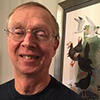
Don has regained strength and mobility after treatment at OHSU for chronic inflammatory demyelinating polyneuropathy (CIDP).
Walking again
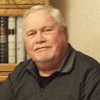
Before treatment at OHSU, Ken couldn’t stand or walk because of CIDP. Now he’s back on his feet and doing his regular activities.
Stay informed
News: Read about research breakthroughs, patient care and many other topics on the OHSU News site.